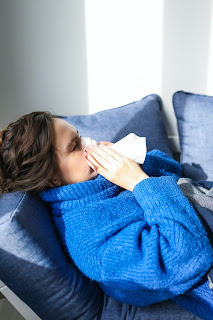Measles
It is characterized by fever, cough, runny nose, and a rash of red spots on the skin. Measles can be prevented with the measles vaccine, which is safe and effective. The vaccine is usually given to children as part of a regular childhood vaccination schedule, but it can also be given to adults who are at high risk of the disease. If you think you or someone you know may have measles, it's important to contact a healthcare provider immediately to get medical help and prevent spreading the disease to others.
Characterized by Fever
Yes, one of the main symptoms of measles is a high fever. Fever is usually accompanied by other symptoms such as cough, runny nose, and a rash with red spots on the skin. A fever usually starts around the third or fourth day after a person is infected with the virus and can last for several days. Other symptoms of measles may include red, watery eyes, feeling generally unwell or sick (nausea), and sore throat. In some cases, measles can cause complications such as pneumonia, encephalitis (inflammation of the brain), and blindness. It is important to seek medical attention if you think you or someone you know may have measles, as the disease can be serious, especially in young children, pregnant women, and people with weakened immune systems.
Pneumonia
Pneumonia is a respiratory disease that is caused by bacteria, viruses, or other organisms. It is characterized by inflammation of the air spaces in the lungs, which can cause difficulty breathing, cough, chest pain, and fever. Pneumonia can range in severity from mild to severe and can be life-threatening, especially in older adults, young children, and people with weakened immune systems.
There are several types of pneumonia, including bacterial pneumonia, viral pneumonia, and fungal pneumonia. Bacterial pneumonia is caused by bacteria and is usually treated with antibiotics. Viral pneumonia is caused by a virus and is usually treated with antiviral drugs. Fungal pneumonia is caused by fungi and is treated with antifungals.
If you think you or someone you know may have pneumonia, it's important to see a doctor because prompt treatment can help reduce the severity of the condition and prevent complications. Treatment may include taking medication, getting plenty of rest, and drinking fluids to stay hydrated.
Respiration
It is a vital function that allows oxygen to enter the body and carbon dioxide to be excreted. Normal breathing is usually automatic and requires no conscious effort. However, certain conditions or activities, such as physical exertion or anxiety, can affect breathing and cause it to become shallow or rapid.
Breathing problems can be caused by several factors, including respiratory infections, asthma, allergies, lung disorders, and heart problems. Symptoms of breathing problems may include shortness of breath, difficulty breathing, coughing, chest tightness or pain, and wheezing. If you have breathing problems, it is important to see a doctor to determine the cause and provide appropriate treatment

Comments
Post a Comment